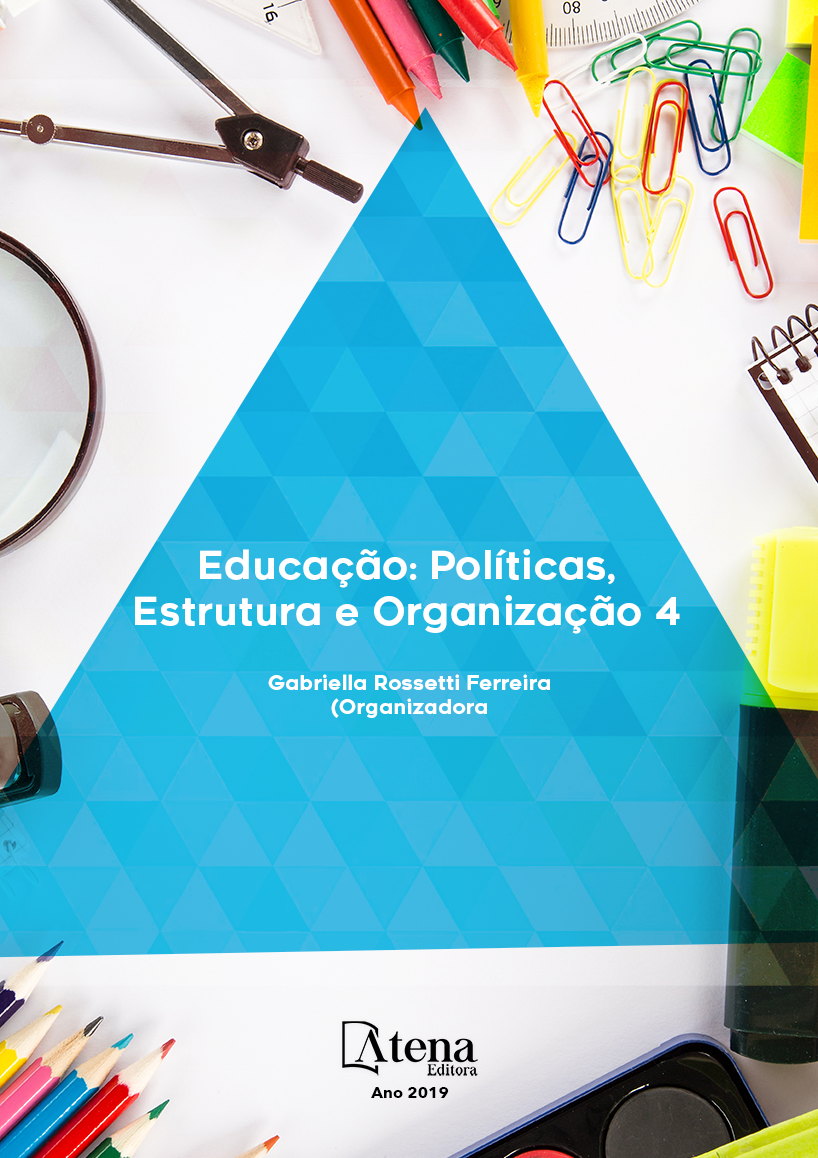
AVALIAÇÃO DA CONCEPÇÃO DE ALUNOS DO ENSINO MÉDIO SOBRE “LIXO” E “RESÍDUO” EM UMA ESCOLA DE REFERÊNCIA DA CIDADE DE VERTENTES/PE
Preocupados com a ação danosa
do homem sobre o meio ambiente e com as
diversas consequências desta ação sobre os
ecossistemas, surge a Educação Ambiental.
Esta tem por objetivo provocar reflexões junto à
sociedade, que permitam ao cidadão identificar
problemas ambientais e a partir destes propor
soluções. Diante deste cenário, o presente
trabalho objetivou avaliar a concepção de
alunos do ensino médio sobre os conceitos
de “lixo” e “resíduo” na cidade de Vertentes/
PE; bem como promover reflexões sobre esta
temática. O trabalho é uma pesquisa qualitativa,
que utilizou o questionário como forma de
coleta. Após a análise dos dados fornecidos
pelo questionário, foi realizada uma exposição
de fotografias, elaborada pelos alunos, cujo
objetivo foi verificar o conhecimento destes
sobre “lixo” e “resíduo” e os tipos de “lixos”,
incluindo o lixo eletrônico. Durante a exposição
foram feitas discussões sobre as fotos com
a turma. Finalizada esta etapa foi aplicado
novamente o mesmo questionário para avaliar
as concepções dos alunos, após a intervenção
da pesquisadora. Dentre os resultados obtidos,
foi identificado uma dificuldade por parte dos
alunos em compreender a diferença entre
“lixo”, “resíduo”, especialmente sobre resíduo
de equipamento eletrônico, entretanto após as
discussões ocorridas na intervenção observouse
uma maior compreensão dos conceitos
trabalhados. De um modo geral, pode-se
perceber que a Educação Ambiental necessita
estar mais presente na comunidade escolar
não como um meio de exemplificar conceitos
ou comemorar datas do meio ambiente, mas
como uma abordagem reflexiva que permita ao
indivíduo perceber qual o seu papel, enquanto
cidadão.
AVALIAÇÃO DA CONCEPÇÃO DE ALUNOS DO ENSINO MÉDIO SOBRE “LIXO” E “RESÍDUO” EM UMA ESCOLA DE REFERÊNCIA DA CIDADE DE VERTENTES/PE
-
DOI: 10.22533/at.ed.05719030412
-
Palavras-chave: Educação Ambiental; Resíduo Eletrônico; Lixo.
-
Keywords: Environmental Education; Electronic Residue; Garbage.
-
Abstract:
Concerned about the harmful
action of man on the environment and with the
various consequences of this action on ecosystems, Environmental Education arises.
The objective is to provoke reflections to society, which allow the citizen to identify
environmental problems and from these propose solutions. In view of this scenario,
the present work aimed to evaluate the conception of high school students about the
concepts of “garbage” and “waste” in the city of Vertentes / PE; as well as promoting
reflections on this theme. The work is a qualitative research, which used the questionnaire
as a form of collection. After analyzing the data provided by the questionnaire, an
exhibition of photographs was carried out by the students, whose objective was to verify
their knowledge about “garbage” and “waste” and the types of “garbage”, including
electronic waste. During the exhibition, discussions about the photos with the class
were made. After this stage, the same questionnaire was applied again to evaluate
the students’ conceptions, after the intervention of the researcher. Among the results
obtained, a difficulty was identified by the students in understanding the difference
between “garbage”, “waste”, especially on waste of electronic equipment, however after
the discussions occurred in the intervention a greater understanding of the concepts
worked was observed. In general, it can be seen that Environmental Education needs
to be more present in the school community not as a means of exemplifying concepts
or celebrating dates of the environment, but as a reflexive approach that allows the
individual to perceive their role, while citizen.
-
Número de páginas: 15
- Paloma Lourenço Silveira de Araújo
- Juliana Thais da Silva Amaral
- Ana Paula Freitas da Silva
- Eduarda do Nascimento Serra Sêca


